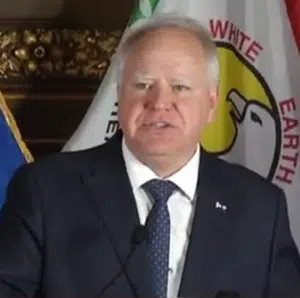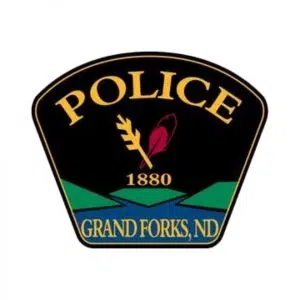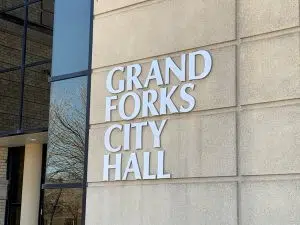
Gov. Doug Burgum has signed legislation allowing tribal nations to enter into agreements with the State of North Dakota to share revenue from alcohol taxes on tribal lands, resolving a longstanding issue.
Under Senate Bill 2377, each of the five tribal nations in North Dakota will have the opportunity to enter into an agreement with the state to impose a single tax on alcoholic beverages sold at the retail and wholesale levels within their respective reservations. Tribal nations that adopt the alcohol tax will keep 80% of the tax revenue, while the state’s general fund will receive 20%.
The Governor’s Office has worked with tribal nations, legislators and the Office of the State Tax Commissioner for several years to negotiate an acceptable framework for revenue sharing agreements and avoid a situation in which both the state and tribe could levy separate alcohol taxes on reservations.
Senate Bill 2377 arose from more recent discussions led by Sen. Dale Patten of Watford City, the Mandan, Hidatsa and Arikara (MHA) Nation including Chairman Mark Fox, Tax Commissioner Brian Kroshus, the North Dakota Indian Affairs Commission, and legislative co-sponsors Sen. Jordan Kannianen of Stanley and Rep. Craig Headland of Montpelier, who chair the Senate and House tax committees, respectively.
“This bill creates a fair and uniform framework for taxing alcohol on reservations while ensuring that the bulk of the revenue goes to the tribes to support addiction treatment and other programs,” Burgum said. “We are grateful for the collaboration with Chairman Fox, Tax Commissioner Kroshus, Sens. Patten and Kannianen, Rep. Headland, and everyone else who worked to bring this across the finish line. This is another example of why tribal engagement is one of our five strategic initiatives, because by building relationships based on understanding and mutual respect, we can address longstanding challenges and reach solutions that benefit all North Dakota citizens.”
“This bill provides a fair mechanism to share taxes generated from the sale and consumption of alcohol on the reservation,” Fox said. “The tribal share collected under SB 2377 will help develop and provide resources for addiction treatment, law enforcement, community safety, and wellness programs.”
“This legislation will provide an opportunity for MHA and other tribal nations to enter into a revenue share agreement, further strengthening state and tribal relations and creating another avenue of needed funding to help support social programs for our tribal partners,” Kroshus said.
“This agreement is a very positive step that has been in the works for many years, and I’m pleased that we now have a resolution supported by all involved,” Patten said.
The bill was approved unanimously in both the House and Senate. It improves upon an alcohol tax revenue sharing bill that passed in 2019 but hadn’t been utilized.
The legislation builds upon previous state-tribal tax agreements signed by Burgum in recent years. A compact signed with MHA in 2019 and ratified by the Legislature changed how the state and tribe share tax revenue from new oil and gas activity on trust and fee lands. Legislation signed in 2021 provided a framework for the state and MHA to share tax revenue from oil wells that straddle the boundary of the Fort Berthold Reservation, while another bill in 2021 authorized the governor to enter state-tribal agreements for sales, use and gross receipts taxes.
The signing of SB 2377 on Tuesday brings the total number of bills signed this session to 108.
.
(Gov. Burgum release)










